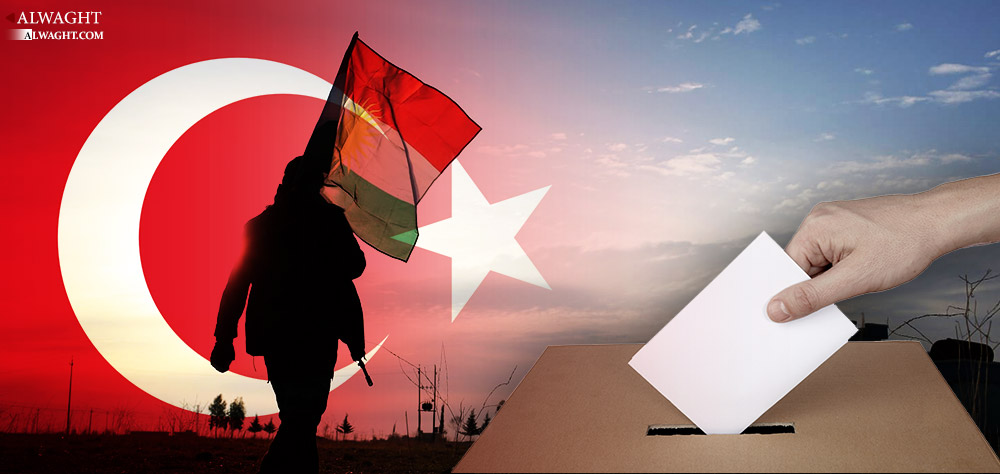Alwaght- Turkish Prime Minister Binali Yildrim expressed on Monday his country’s strong opposition to the forthcoming Kurdish independence referendum, saying that the referendum the Kurdish Regional Government (KRG) has planned is a challenge to the Turkish national security, and Ankara will take the necessary actions to face it.
The wave of Ankara's opposition to the September 25 poll has continued with Turkish President Recep Tayyip Erdogan asserting in Tuesday that Turkey will take final decisions to confront the Iraqi Kurds' independence plebiscite in the September 22 session of the country’s Supreme National Security Council.
Furthermore, Turkish opposition came also by Devlet Bahceli, the head of the National Movement Party, who warned that the Kurdish referendum poses the most immediate threat to the Turkish national security. He further insisted that such a poll should not be allowed to go ahead because if it proceeds, the Turkish territories too will be target to “traitorous and dark conspiracy.”
Imminent challenges that Turkish leaders assume the late September vote imposes to their national security can be categorized as following:
Influence on Turkey's Kurds
Certainly, the overarching issue that causes the Turkish leaders to worry about the referendum is related to Kurds of Turkey who account for the biggest Kurdish population in the region. Turkey now is home to between 15 and 18 million Kurds who in past two decades organized most challenging protests against the Turkish government, always showing off that they have the potentials to rise against the central government.
There is a notion that in case of success of the Kurdish poll, the identity gaps will even widen in the Turkish society, and this in turn naturally prompts the Kurdish separatist demands which means that a serious threat to the Turkish national security is unavoidable.
Impairment of Turkish strategic depth in Iraq
Iraq that once was a territory under control of the Ottoman Empire hosts Turkish-backed Turkmen citizens in the cities of Kirkuk and Mosul. The provincial council in Kirkuk in August 29 voted to allow the disputed city to take part in the plebiscite of independence. If this participation means later breaking from Iraq and joining the KRG, then Turkey will lose its traditional influence inside Iraq because it is very likely that under an independent Kurdish state the Turkmens will be dislodged from their home territories or repressed by the Erbil government.
The Turkish president in a press conference just before his trip to New York to take part in the annual United Nations General Assembly maintained: “We have something to be concerned about. We have 350 kilometers of shared borders. We have fellows with the same religion living there. We belong to a common civilization. That is, being Kurdish, Turkmen, or Arab does not separate us as Turks from them. But If measures are taken to partition the neighbor Iraq, we cannot tell them go ahead.”
Kurdish state as safe haven for PKK
When the Kurdish region gets independent, it will turn into a safe haven for the Kurdistan Workers' Party (PKK), Turkey's archenemy that is blacklisted by Ankara as a terrorist group. The PKK and the KRG have their own differences, but this essentially stems from the relations established between the Kurdish region and Turkey and so such a discord might not present a strategic and fundamental challenge to the PKK-KRG relations.
Post-independence situation changes and rise of such a new state as Kurdistan in the region will politically and geopolitically transform the region. The very likely removal of PKK-KRG rifts and initiation of a thaw is one of the signals of transformation. After all, the Kurds are highly resolved to form what they call the “greater Kurdistan.” They move step by step towards their goal and this is something they admit. They openly announce that they will never back down on this aspiration, and add that stopping short of demands guaranteeing less than that is only temporary and forced by tactics and current conditions.
The Kurds seize any chance to take even small steps towards this end, unless they face serious obstacles ahead. An all-Kurdish state will provide a harboring place for the separatist Kurds in the neighboring countries. This will shore up their motivation and even power to go forward towards a greater Kurdistan. At the present time, countering the Kurdish separatism is not much of a hard work but deterring collective Kurdish secessionism supported by a Kurdistan state is dearly costly and strenuous.
Kurdish independence initiates regional countries' split
The region for over a decade witnessed change of balance of power following the US military intervention in Afghanistan and Iraq and toppling the governments there. More regional changes came from the 2011 Arab uprisings that ushered in the Islamic awakening period and resultant removal of pro-Western dictatorships in the region. The outcome was a fierce competition between various actors to introduce their own desired regional order. The rivalry shows itself in the devastating Syrian crisis. The Western powers along with the Israeli regime have made efforts to partition big regional countries like Syria, Iraq, and Turkey at the hands of the Kurds. Failed in their scenario of Syria partition, the West now resorts to the available option, which is contribution to establishment of a Kurdistan state on the southern Turkey, western Iran, and eastern Syria borders. This plot drives the concerns of the Turkish leaders who fear such separatism inside their country and thus come strongly against it.



























